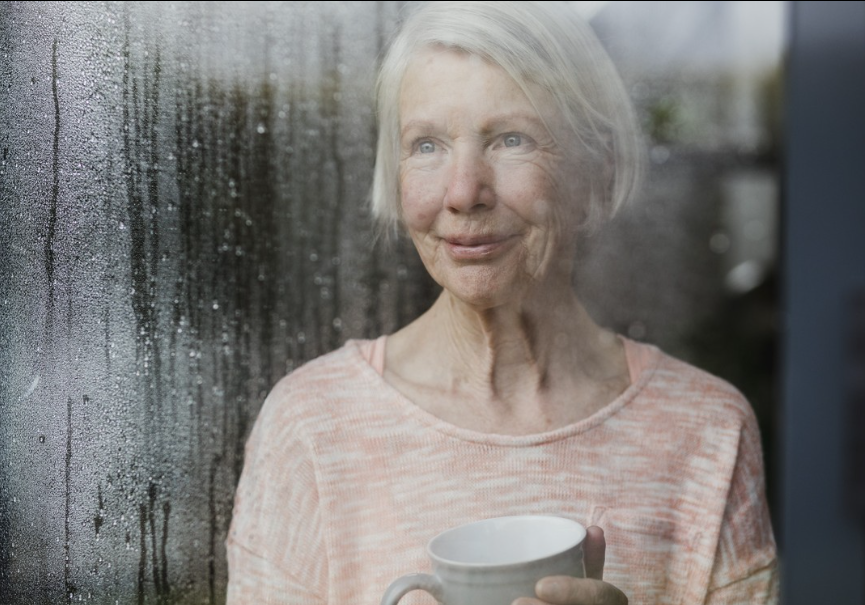7 min read
The Calm Before the Storm: 5 Preparedness Tips for Seniors During Hurricane Season
By: Linda Ward on October 6, 2023 at 3:35 PM

Hurricanes are among the most destructive natural disasters, and they can pose unique challenges for seniors. As we age, our physical and mental capabilities may change, making it essential for older adults and their caregivers to take extra precautions when preparing for these powerful storms.
Hurricane season runs each year from June 1 until November 30. Especially for seniors in Florida, it’s never too early to start preparing, as storms can pop up with only a couple days' notice. This blog post will provide valuable insights and tips on hurricane preparedness for seniors to ensure their well-being during these challenging times.
- Create a Personalized Emergency Plan
Seniors, especially those living alone, should have a well-thought-out hurricane emergency plan. This plan should include:
Evacuation strategy: Determine whether you will evacuate or shelter in place, considering factors like your location, flood zone, the storm's severity, and your mobility.
Emergency contacts: Maintain an updated list of essential phone numbers, including family, friends, and healthcare providers.
Medical information: Document your medical history, current medications, and any special needs or allergies. Keep copies of this information in a waterproof container that is easily accessible.
- Build a Hurricane Kit
Assemble a hurricane emergency kit containing essential supplies to sustain you during and after the storm. Make sure your kit includes:
Prescription medications: Stock up on necessary medications and medical supplies to get you through for an extended period, in case you are unable to get them after the storm due to damage, flooding, power outages, etc.
Non-perishable food: Include enough canned goods, dry foods, and snacks to last at least a week.
Water: Store at least one gallon of water per person per day for drinking and hygiene purposes.
Battery-powered radio and flashlights: Ensure you have a way to stay informed and provide lighting during power outages. Don’t forget the extra batteries to power them!
First aid supplies: Pack a basic first aid kit, including bandages, antiseptics, and any necessary medical supplies.
Blankets and clothing: Include warm blankets, comfortable clothing, and sturdy shoes in case you need to leave your home.
- Maintain Communication
During a hurricane, communication is crucial. Here's how seniors can stay in touch:
Emergency alerts: Sign up for local emergency alerts through text messages, phone apps, or NOAA Weather Radio.
Cell phone and charger: Keep your cell phone fully charged and have a backup power source like a portable charger.
Check-ins: Arrange with a friend or family member to check in with you regularly during the storm to ensure your safety.
- Prepare Your Home
Making your home hurricane-ready is essential for seniors. Here are some steps to take:
Windows and doors: Get help from a family member, neighbor or friend to reinforce windows with hurricane shutters or plywood, if needed. Ensure doors are secure to prevent wind and water infiltration and place sandbags at the bottom of your doors.
Outdoor items: Secure or temporarily relocate outdoor furniture, plants, and other loose items that can become projectiles in high winds.
Generators: If you have a generator, ensure it is in working order and that you know how to use it safely. Do not store or run generators indoors.
- Maintain Mental and Emotional Well-Being
Hurricane preparedness can be stressful, especially for seniors. Here's how to take care of your mental and emotional well-being:
Stay informed: Stay educated on the storm's progress but avoid excessive exposure to media coverage that may cause anxiety. Choose one or two local, reliable news sources and tune in for their regular updates.
Stay connected: Reach out to friends and family for emotional support during and after the storm.
Engage in calming activities: Practice relaxation techniques, such as deep breathing or meditation, to reduce stress. Keeping your favorite movies or TV shows at hand during these times could also help keep you entertained. Consider having an adult coloring book and colored pencils, a word search book, or sudokus on hand so that you have something to do if you lose power.
Hurricane preparedness for seniors is not just about physical readiness but also about ensuring mental and emotional well-being. By creating a personalized emergency plan, building an emergency kit, maintaining communication, preparing your home, and taking care of your mental health, you can increase your chances of staying safe and secure during hurricane season. Remember, your well-being is of the utmost importance, and with proper preparation, you can weather the storm with confidence and resilience.
The experienced team at Gulfside Healthcare Services provide the very best care to our patients, offering peace and comfort alongside quality medical care, and emotional support to help the entire family through the toughest times. Gulfside’s team works extremely hard and diligently to provide peace of mind to its patients during all kinds of weather.
If you think you know someone who may benefit from our services or if you have any questions on what may qualify someone to receive hospice care from Gulfside, contact us at 800-561-4883 or visit Gulfside.org.
Related Posts
Hospice or Palliative: Understanding the Difference
Hospice Care
Hospice care is palliative by nature, meaning it provides comfort care. At the point...
Telehealth: Making Palliative Care Accessible For Those With Chronic Illness
With the advancement of technology, tasks like visiting the doctor, going to therapy, and being...
Tips for Father's Day: Sharing and Celebrating a Legacy
Grilling, fishing, and late summer nights. June kicks off the beginning of warmer weather and...


